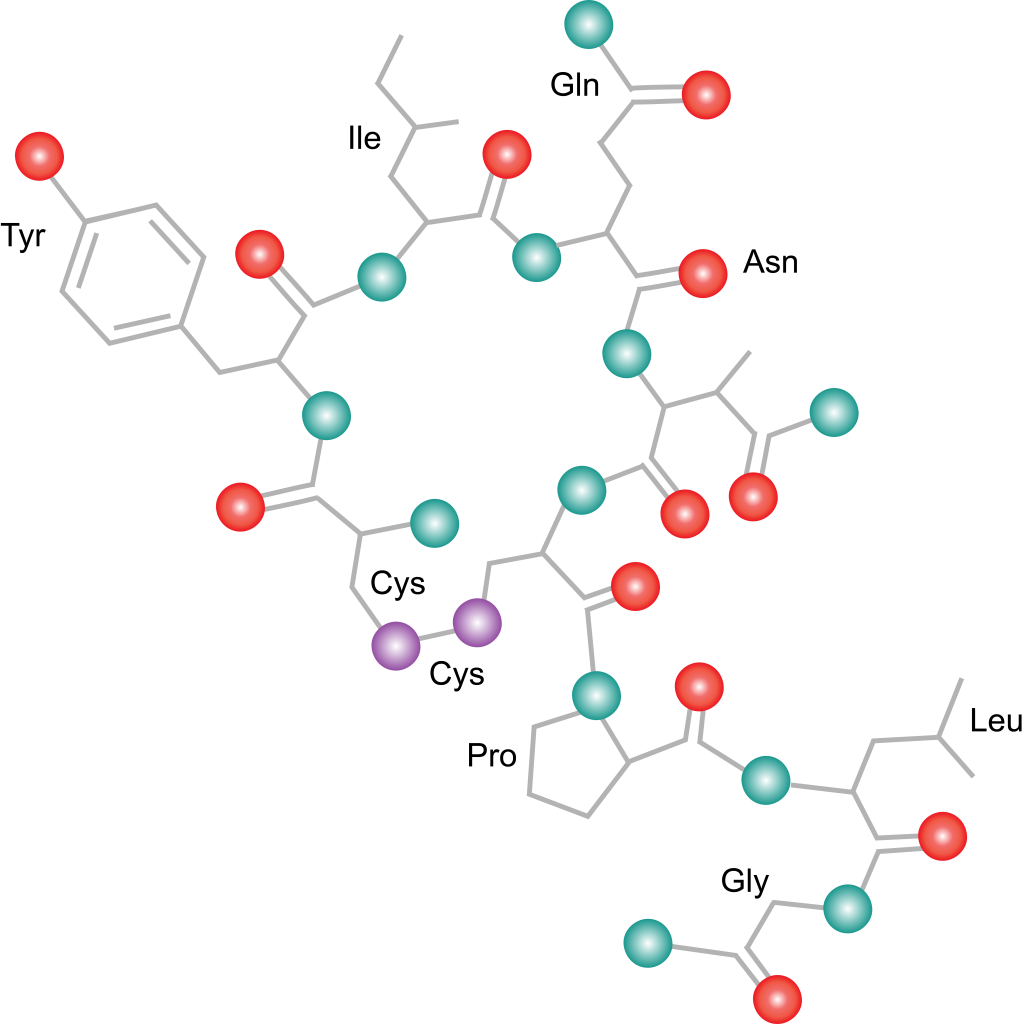5.6 What are proteins?
Proteins consist of one or more strings of amino acids called polypeptides. The actual sequence of amino acids in the polypeptide is the protein’s primary structure. The hormone protein oxytocin is a small protein, consisting of only nine amino acids in a single polypeptide. Collagen is much larger, typically containing about 1,000 amino acids.
The way in which amino acids attract and repel each other gives proteins a characteristic shape. Some proteins consist of two or more polypeptides combined. And it is this final configuration that really determines how a protein functions. Simply, protein shape is the key to protein function.

Content on this page was originally published in The Evolution and Biology of Sex by Sehoya Cotner & Deena Wassenberg and is reproduced here in compliance with the original CC-BY-NC 4.0 license.

